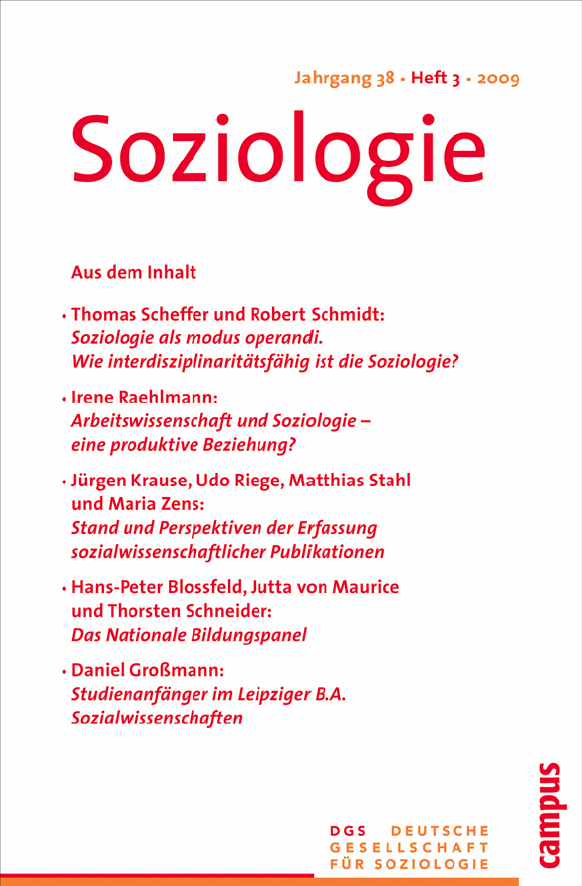Soziologie als modus operandi
Wie interdisziplinaritätsfähig ist die Soziologie?
Schlagwörter:
Interdisziplinarität, KriseAbstract
Die gegenwärtige Krise der Soziologie ist auch eine Krise ihres Interdisziplinaritätsvermögens, d. h. ihrer Ressourcen und Angebote für fachübergreifende Arbeitszusammenhänge. Ausgehend von einer knappen Skizze der gegenwärtigen Situation zeigen wir, dass die aktuelle Lage mit den gestiegenen Anforderungen zur disziplinübergreifenden Kooperation für die Soziologie eine Reihe von Herausforderungen bereithält. Wir argumentieren, dass für das Interdisziplinaritätsvermögen des Faches ein spezifisch soziologischer modus operandi von entscheidender Bedeutung ist. Dieser nährt sich insbesondere aus der inneren Komplexität des Faches. Innovative Impulse kann die Soziologie in der interdisziplinären Kooperation insbesondere dann geben, wenn sie die Gegenstände der interdisziplinären Forschung dem Spannungsfeld ihrer vielfältigen innerdisziplinären Ansätze aussetzt.
The crisis of sociology is a crisis of its capability to contribute to interdisciplinary research frameworks as well. The two authors explore the basic disciplinary strategies to respond to the demands of and for interdisciplinary collaboration. Within the sociological field, they identify three basic programmes: strong (oriented towards expansion), weak (oriented towards applied studies), and dialogical (oriented towards an even exchange). According to their diagnosis, there is too little appreciation for the internal complexity of the discipline and for the oppositions – micro/macro, quantitative/ qualitative, structure/agency, etc. – performing these complexities. Sociology could offer much to and benefit from interdisciplinary collaborations, if it not just tolerated these oppositions but rearticulated them vis-à-vis the respective subject matters.


